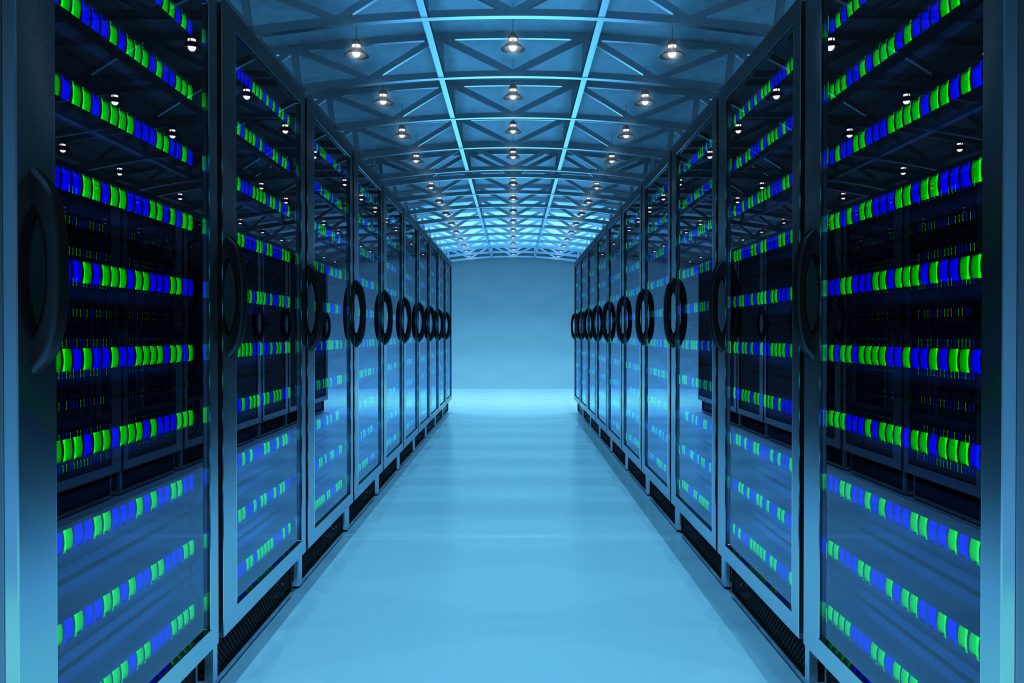Getting Started With Servers: Everything You Need To Know

Network and internet telecommunication equipment in server room, data center interior
‘Server’ has become something of a buzzword in the business world nowadays. There are so many different kinds of servers to consider, and so many implications that come along with each. Once knowledge that was confined to tech experts, it’s now prudent for all business owners to have an understanding of server technology and what it means for their business.
All the information can become a little overwhelming, though, so we’ve put together a guide to getting started with servers. Read on to find all you need to know about these pieces of technology and how you can choose the right server for your business.
What is a server?
First things first: what exactly does the term ‘server’ refer to? Put simply, a server is a computer (or a computer program) that’s the main component of a network. It manages access to the resources, files, programs and services used by all the other computers or devices on that network.
There are many types of servers, including web servers, which allow access to websites on the internet; mail servers, which allow you to send and receive email; and file servers, which control access to files that are stored separately on a multi-user system. These are all basic kinds of servers, but there are also more complicated types, which we’ll now delve into.
Dedicated servers
Dedicated servers come into play when we talk about web hosting – that is, the process that allows you to make a website accessible on the internet. A dedicated server is a single computer in a network that is used for a single, exclusive purpose.
In a business sense, a dedicated server may be rented and exclusively used by a business to serve their web hosting needs, and theirs alone. It will not be shared by any other customers or used for any other purpose.
Virtual private servers
A virtual private server is a different type of dedicated server, with the key difference being in the word ‘virtual’. Instead of being a physical computer used exclusively to serve one business’ needs, a VPS is installed on a single server computer that services multiple customers.
However, the resources dedicated to each customer’s VPS are equal, and to the user, it basically functions the same way as a dedicated server. A less expensive option, it’s still just as effective, especially for small businesses.
Cloud servers
A cloud server is one that is created, hosted and delivered through a cloud platform – that is, a platform made up of remote servers that are hosted entirely online. When you utilise a cloud server, you aren’t actually renting or purchasing any kind of physical server; instead, you’re renting virtual server space and accessing it remotely through a cloud service provider.
This may sound similar to the virtual private server we discussed above, and it is, but there are a few key differences. Where a VPS is a single physical server divided into smaller sections that each act as their own virtual server, a cloud server utilises multiple servers and distributes resources across them.
Environmental friendliness: cutting your carbon footprint
So, out of all these servers, which is the most environmentally friendly? Plenty of businesses are looking to reduce their carbon footprint, and the choice of which server you’ll use can significantly affect this.
Basically, any virtual or cloud server option is likely to have a more reduced carbon impact than a physical server. The energy it takes to run physical servers can be enormous, not to mention the backup generators that all data centres install as a matter of course.
Another relevant concept: virtual private networks
Whenever there’s talk about servers, the phrase ‘virtual private network’ is sure to come up too. This refers to an encrypted, secure connection between your computer and a remote server, such as those we discussed above.
VPNs are extremely useful when accessing your business’ private network from an unsecured connection, such as a public wi-fi hotspot. They provide an extra measure of security and safety to ward against hacking and data loss.
***
Hopefully, you’re now up-to-date on all you need to know about different kinds of servers, and what all the terminology really means!

